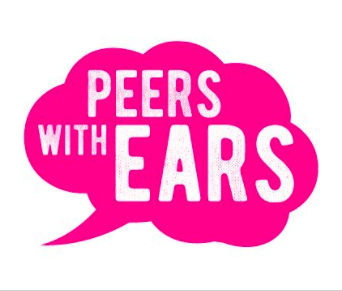Mental health mentorship program seeks to break down isolation at U of T
Emily Barber ASSOCIATE NEWS EDITOR
Photo: Peers with Ears.
One of the University of Toronto Student Union’s (UTSU) latest endeavours to address the often-isolating nature of the University of Toronto (U of T) is through Peers with Ears – a mental health mentorship program that focuses on student-to-student interaction to foster connections and create solidarity regarding issues concerning mental health.
The program proposes a one-on-one conversation between students, with one offering their advice and experience in order to help the other work through issues they are currently struggling with. Peers with Ears is by no means meant to replace or undermine professional mental health services, but rather it aims to supplement them and encourage student involvement in the conversation about mental health. The goal is for students to discuss in a meaningful way something that is deeply personal and sensitive; it is not to cause pain but to help one another feel less lonely and less vulnerable.
This program was initially proposed last winter by the now Vice President External of UTSU, Anne Boucher, as part of her election platform. It is currently running a pilot program to get a sense of its student appeal and is looking to further expand into an official UTSU service. Thus far, the pilot is on track to reach its goal of a minimum of 10 pairs – 20 students in total – with 14 students registered as of January 4. The current registration deadline is January 19, giving students plenty of time to apply. The cap of 20 students is not an absolute one, meaning Peers with Ears is willing to accommodate more students into the pilot program should the need arise.
When asked about what the motivation was behind providing a supplementary program when U of T already has many professional mental health programs and affiliations – the Health and Wellness Centre at Koffler and CAMH (Centre for Addiction and Mental Health) being two immediate examples – VP Boucher replies that while mental health professionals are one hundred percent helpful, “often we just need to talk to someone who gets us, who gets what we’re going through from experience”. And at a school like UofT, that can be difficult due to its sheer size, so “finding friends who connect with us on these things is not easy,” she explains. She goes on to say that she hopes the program can “be valuable for both the mentee and the mentor” in terms of sharing an experience and gaining a connection with each other.
Boucher had been in consultation over the summer with a team from Health and Wellness and with the Lead Coordinator for Peer and Mentorship Programs at Student Life in order to ensure this program would be as effective as possible. She wanted to make sure that, in her words, “this program would truly help students, and make university just a little easier for some of us.”
Outreach for Peers with Ears has included canvassing on various social media platforms, including a Facebook post on the UTSU Facebook page. The post contains clear instructions outlining the objective of Peers with Ears as well as registration forms available to students so they can sign up straight away. The post also provides direct helplines available for students in immediate need of help, so that if necessary, students can access professional services as quickly as possible.




